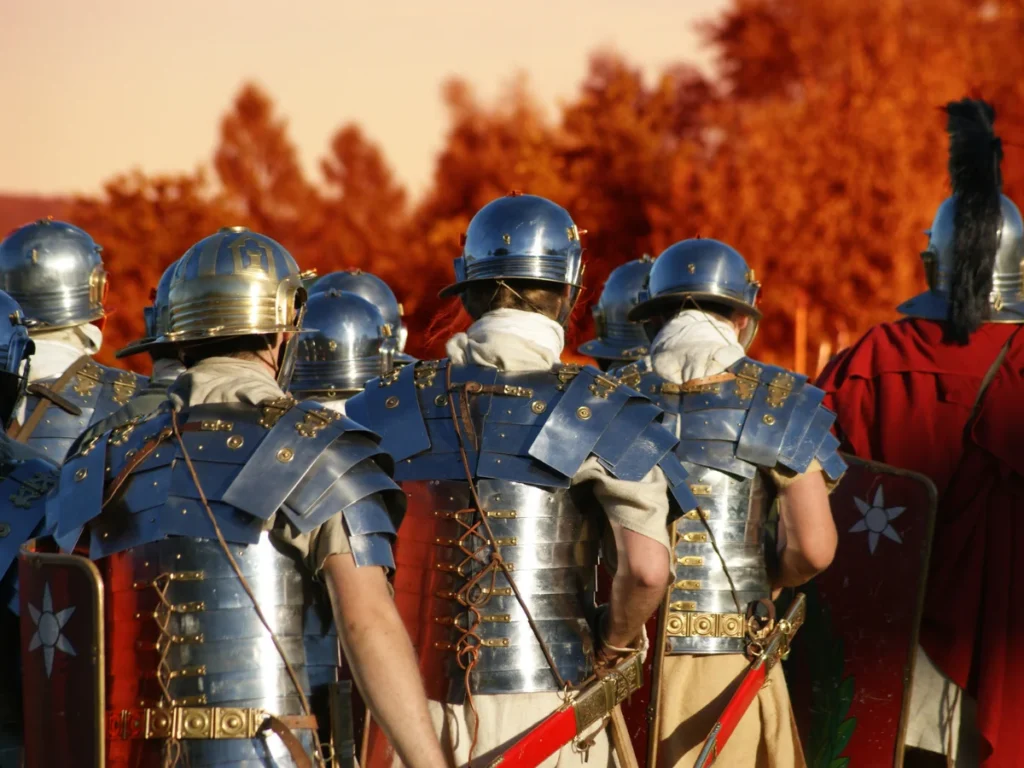Octavian was an architect of the Roman Empire
Octavian, also known as Augustus, played a pivotal role in shaping the Roman Empire. Rising from the chaos following Julius Caesar’s assassination, he formed the Second Triumvirate and triumphed at the Battle of Philippi. His rivalry with Mark Antony culminated in the Battle of Actium, where Octavian emerged victorious. Becoming Augustus, the first Roman Emperor, he brought stability and the Pax Romana. His cultural revival, known as the “Augustan Age,” left an enduring legacy in Greece and Rome.

Octavian: An architect of the Roman Empire
Early Life and Rise to Power
Octavian, also known as Gaius Octavius or Augustus, was a transformative figure in ancient Rome and a central character in the transition from the Roman Republic to the Roman Empire. Born in 63 BCE, he was the grandnephew and adopted son of Julius Caesar, inheriting both Caesar’s name and ambitions. At the tender age of 18, Octavian found himself thrust into the tumultuous world of Roman politics upon Caesar’s assassination in 44 BCE.
Defying the Odds
Octavian’s rise to power was far from assured. With Rome in chaos, he had to navigate the treacherous waters of shifting alliances and political maneuvering. One of his first challenges was to form the Second Triumvirate with two other influential Romans, Mark Antony and Marcus Lepidus. This alliance was initially forged to avenge Caesar’s murder. They soon established a list of proscriptions, targeting their enemies for execution.
The Battle of Philippi
One of the most pivotal moments in Octavian’s early career was his involvement in the Battle of Philippi in 42 BCE. This battle saw the forces of the Second Triumvirate, including Octavian and Mark Antony, pitted against the conspirators who had assassinated Julius Caesar, led by Brutus and Cassius. Octavian and Antony emerged victorious, avenging Caesar’s death, but not without significant bloodshed.
The Road to Sole Rule
Following the Battle of Philippi, Octavian’s alliance with Mark Antony began to fray. The two men increasingly found themselves on opposing sides, with Antony forming a relationship with Cleopatra of Egypt. This love affair further escalated tensions, leading to the decisive Battle of Actium in 31 BCE.
End of the Republic
The Battle of Actium marked the beginning of the end for the Roman Republic. Octavian’s victory over Antony and Cleopatra solidified his power, and in 27 BCE, he officially became Augustus, the first Roman Emperor. Augustus’s rule ushered in an era of relative stability and peace known as the Pax Romana, a stark contrast to the civil wars and political turmoil of the late Republic.
Legacy and Impact on Greece
Augustus’s influence extended beyond Rome’s borders, reaching into the heart of ancient Greece. The Greeks, who had a deep admiration for their own classical past, found in Augustus a leader who respected their heritage. He was instrumental in the restoration and support of Greek culture, including the promotion of literature, art, and architecture. This cultural revival became known as the “Augustan Age,” leaving an indelible mark on Greek civilization.
Augustus’s reign, which lasted for four decades until his death in AD 14, set the stage for the expansive Roman Empire, forever altering the course of history. His legacy as the first Roman Emperor and the mastermind behind the empire’s transformation continues to be studied and celebrated to this day.
